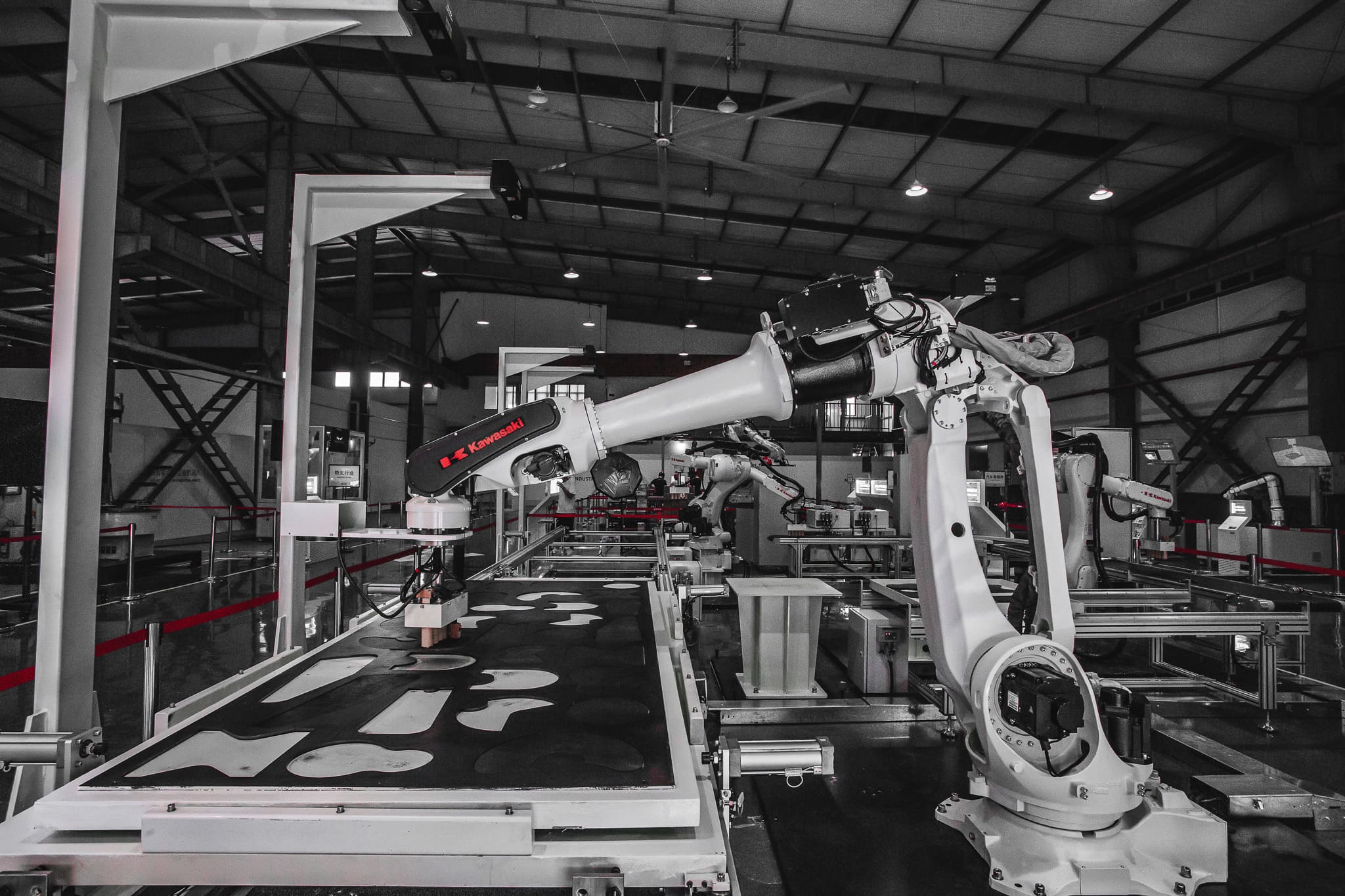Manufacturing contributes the highest to national GDP of Indonesia and has given employment to ~18 million people. Despite these numbers the industry has been stagnant in terms of cost to productivity due to the traditional practices followed.
Indonesia is en route to enter Industry 4.0 as the manufacturing sector is ripe for technological disruption and enables creation of whitespaces in multiple spheres of manufacturing like design, production, marketing and sales.
Here’s a deeper insight into the immense potential of the Digital Manufacturing sector.
1. Manufacturing contributed ~17% to national GDP and 40% to total investments in 2Q 2022 showing high importance of the sector
In the second quarter of 2022, manufacturing contributed to 17% of National GDP and Food and Beverages took the cake for the biggest share.
The attractiveness of the manufacturing sector and its big role in GDP and economic development is evident in its contribution to total investments, ,i.e., ~40%. The 40% investments is dominated by the Metal industry, Food and beverages, Pharmaceutical, Non-metal mineral and Automotive sectors.
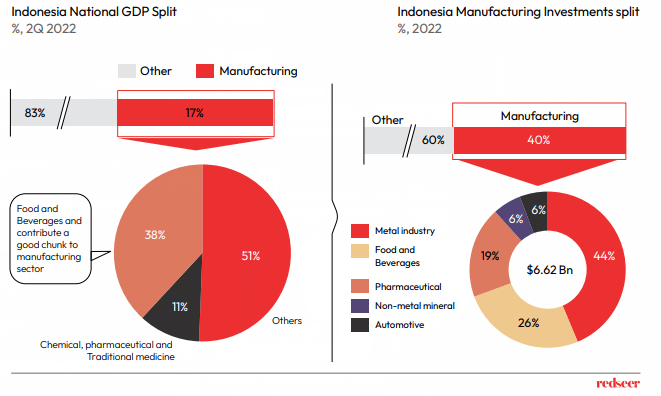
2. The industry is reaching a point where further innovation is needed to push the manufacturing industry higher…
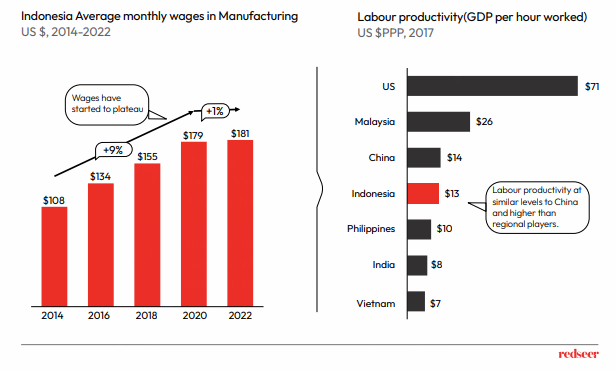
Average monthly wages for employees in the manufacturing sector has grown at a CAGR of 7% over the years but has recently started to plateau with only 1% CAGR in the past 2 years. Labour productivity is at par with China stating saturated levels but the gap from developed countries suggest high potential to improve.
3. …prompting the government to adopt Indonesia 4.0
to revitalize the economy with key targets that will boost the digital manufacturing sector
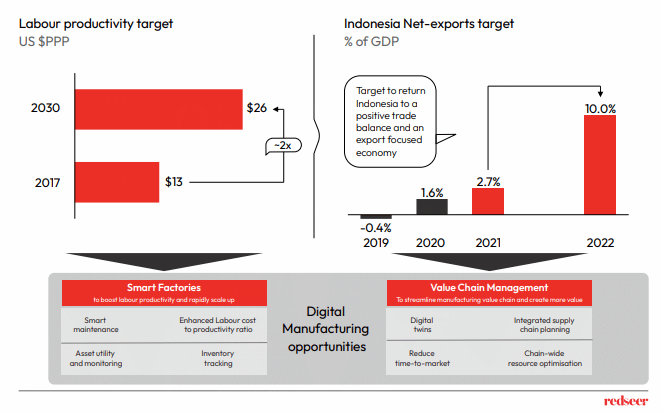
The Indonesian government has hence established an integrated roadmap with goals that align with development of the digital manufacturing sector to ensure Industry 4.0 implementation Several Digital manufacturing use cases have come up to support the government initiatives to empower SMEs, create new job opportunities and take advantage of whitespaces in oriented sectors.
4. Several startups have begun to ride the wave with various offerings across the digital manufacturing value chain to help SMEs boost their productivity
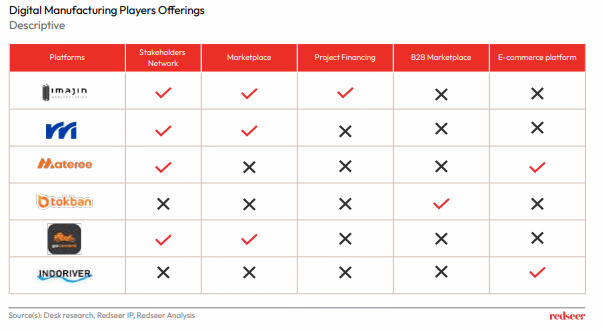
Marketplace and e-commerce platforms pose the biggest opportunities in the field of digital manufacturing considering the least amount of risks involved and the visibility achieved through an online presence in this fast-moving digital world. And as expected the many startups have started digitalizing starting with B2B and B2C marketplaces, and e-commerce platforms. The startups like Materee, Indoriver and GoCement have also caught the interests of investors and have amassed fundings of $4million, $25million and $8million respectively

